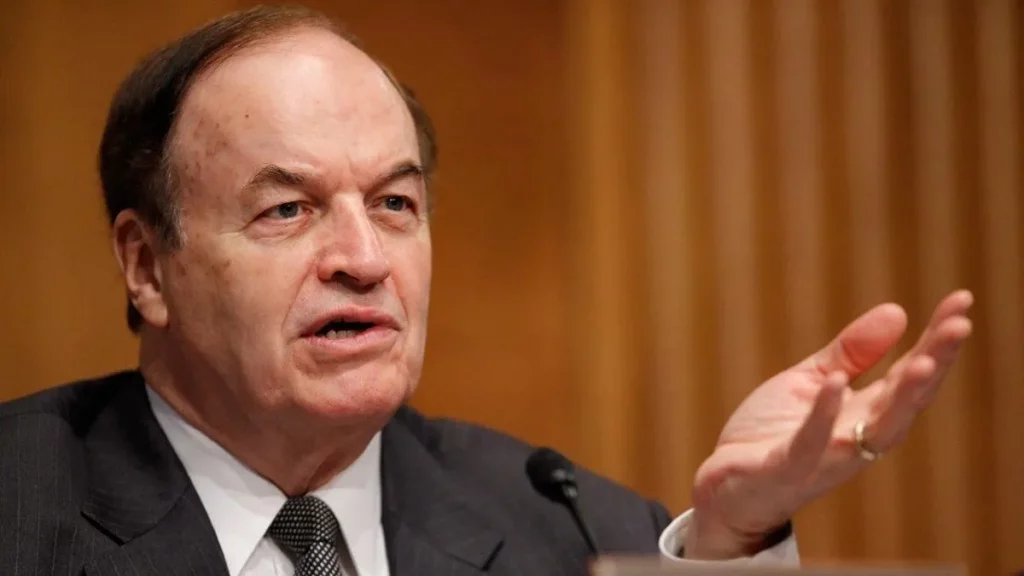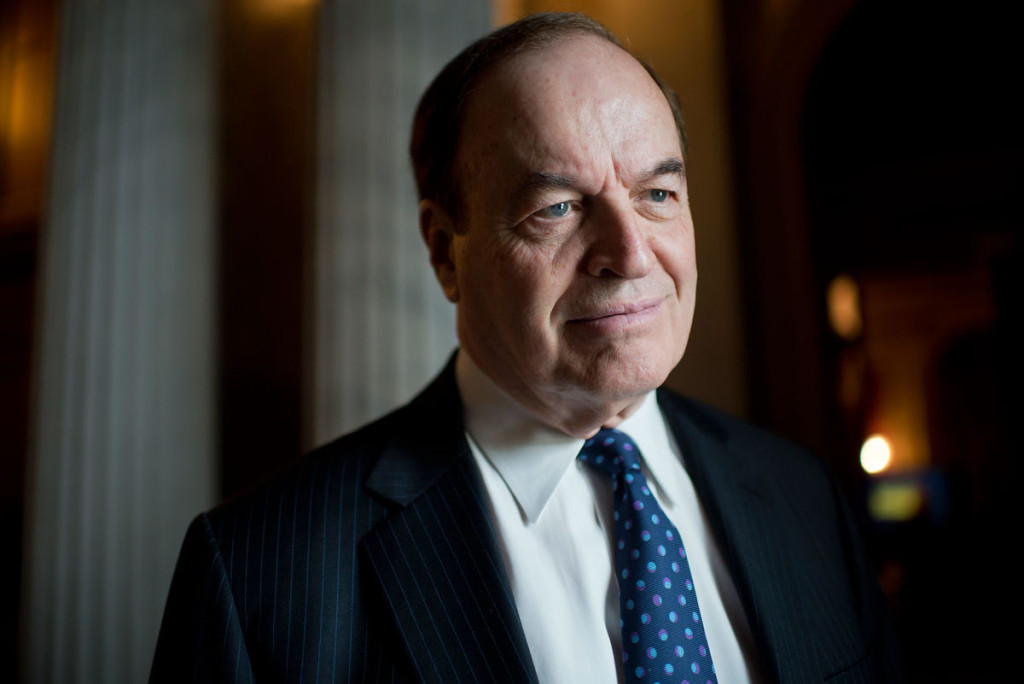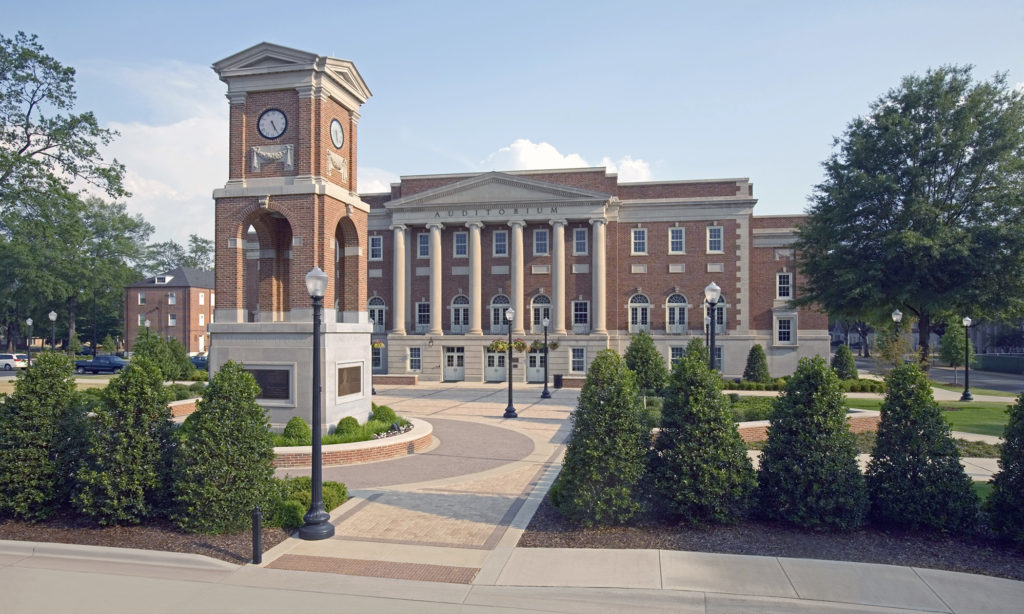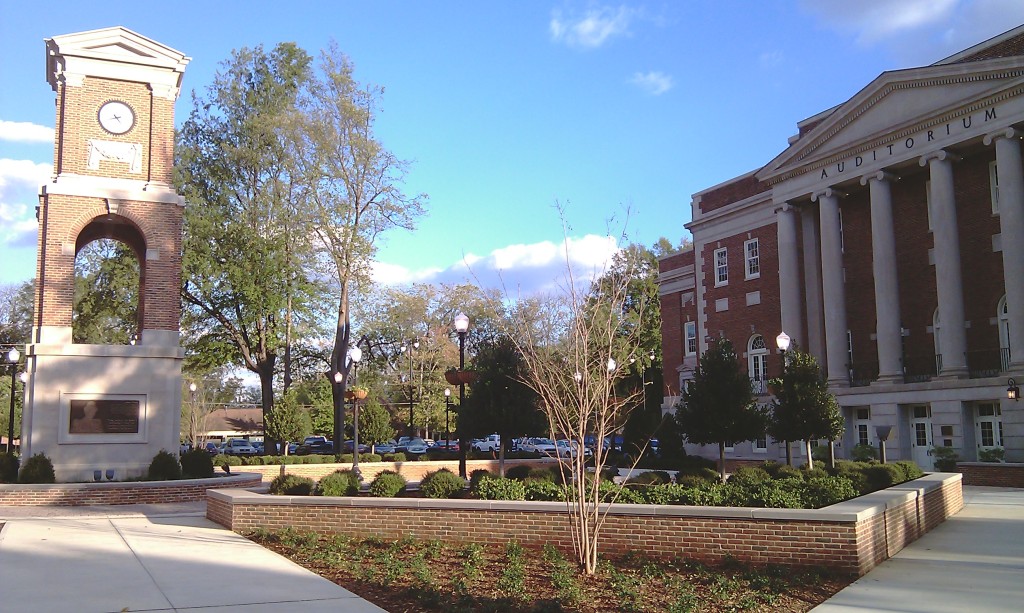Alabama Sen. Richard Shelby’s lasting legacy

If Alabama is prospering, thank retiring U.S. Sen. Richard Shelby. That’s the refrain from the coast to the mountains among those responsible for economic and industrial development. While representing the state in the U.S. Senate for six terms – 36 years – preceded by work as an attorney, roles in state government, and eight years in the U.S. House of Representatives, Shelby earned a reputation as one who can understand the issues, work across the aisle to get things done and look ahead with a clear vision of what the state can achieve in the future. Ask in Huntsville; they’ll tell you his support of space and defense was critical to that entire region. Ask in Montgomery or Tuscaloosa or Lincoln or Huntsville, and they’ll tell you federal dollars for roads and public works made it possible to attract an automotive industry that thrives today in the state’s heartland. Ask at the universities, and they’ll tell you that federal support helps educate today’s students to meet the needs of growing industries. And ask in Mobile and hear the story of phenomenal growth at the port – how it impacts the Port City and then sends goods on trains and interstates and inland waterways to reach the whole Alabama economy. And all of them will tell you that without Richard Shelby, the economy just wouldn’t be what it is today. Business Alabama asked key individuals around the state for their examples of Shelby’s impact. Here’s what they had to say. Chip Cherry President & CEO, Huntsville/Madison County Chamber of Commerce “Sen. Shelby has been a blessing to us in the sense that he has the ability to see how the different pieces of the puzzle are scattered about and what can be brought together to benefit both the country and the state.” Cherry’s favorite example is at Huntsville’s Redstone Arsenal, centerpiece of the space and defense work and more recently of the FBI’s Southern headquarters. “He saw the synergies between what was happening at Redstone and what the FBI was doing” and helped bring the FBI. The move “allows for collaboration among federal partners on the same campus,” he said. Shelby, he said, “has been a strong advocate, informing his colleagues of the value of what happens at Redstone and making the case for how investment there benefits the entire country. And that benefits us as a region. “I believe in my heart that he’s more of a statesman than a politician – able to work across party lines to make a case and build consensus. That’s an unusual thing to happen in D.C. these days.” Finis St. John IV Chancellor, University of Alabama System “Sen. Shelby recognized and strongly believed from early on in his career that education and higher education were the ways that the state could advance. He has been a tireless supporter of higher education, research, health care – all of which are integral to our mission at the University of Alabama System. “It’s hard to list all the ways he’s helped advance our mission, but nobody in anyone’s memory has been more important to that.” And why is higher education important to the state’s economy? “It’s the pipeline for the people that execute our economy,” St. John said. “If we do a better job at generating that raw material, then every entity in the state is better off, every business, government, all areas of the economy do better with higher equality results from higher education. “Every time you talk to a business leader right now, the biggest problem they face is workforce. Nobody has enough people, and they don’t have qualified people. Not only are we trying to address that with Alabama students but also by bringing in out-of-state students and then working with government and industry to entice them to stay in Alabama.” Shelby’s influence goes well beyond higher education and research funding, St. John noted. “It hasn’t been piecemeal, but comprehensive.” Shelby was a family friend as St. John was growing up, and he considers the senator “a dear friend, mentor and adviser, whose wisdom I’ve been very fortunate to benefit from for a long time.” Greg Barker President, Economic Development Partnership of Alabama “We’re in a global economy right now, so having somebody like Sen. Shelby, who is a constant advocate for the right federal policies that position the United States for growth and as a good place to do business, that’s paramount.” “He was an aggressive advocate for a wide range of elements that made the U.S. a better place to live and work. That’s where you start,” said Barker, who previously was an executive at Alabama Power. “When you think of business growth and development, you have to have the right infrastructure, and that infrastructure is expensive. It takes federal money to build roads and water systems and everything.” Shelby was particularly good at “making sure Alabama is aware of the federal programs and very competitive to be able to receive federal money and put it to good use for Alabamians.” Shelby, he said, “was a very distinguished and influential U.S. senator, and that put him in a lot of interesting rooms with interesting people – and he was consistently an advocate for Alabama, suggesting that people consider it for future growth for their company.” Barker especially respected the senator’s role in getting roadbuilding funds that enabled the establishment of Mercedes-Benz U.S. International in Tuscaloosa County and water system funding that enabled construction of the Honda plant in Talladega County. “I don’t think it’s an exaggeration at all to say that Alabama’s advanced manufacturing success – for the auto industry alone – is due to him.” Greg Canfield Secretary, Alabama Department of Commerce “From my perspective, what’s most impressive about Sen. Shelby’s legacy in Alabama is his impact on Alabama’s economic engines and the infrastructure that drives our economy.” Canfield called out examples across the state – the port with the most container traffic in its history; the universities with
Sen. Richard Shelby announces $360 million UA funding NOAA research

Senator Richard Shelby, Vice Chairman of the Senate Committee on Appropriations, announced that NOAA has selected the University of Alabama (UA) to host a new cooperative institute focused on accelerating hydrology research and enhancing collaboration. This new institute will be created with an award of $360 million that will be distributed over the course of five years, with the potential for renewal in another five years. The new research venture will establish the Cooperative Institute for Research to Operations in Hydrology (CIROH) and will be administered by the Alabama Water Institute. It will consist of a group of 28 academic institutions, non-profit organizations, and government and industry partners with the goal of this institute will be to improve NOAA’s actionable water resource information for forecasts, watches, warnings, and related products to protect life and property and strengthen the national economy. NOAA selected the University of Alabama as the host for CIROH following a highly-competitive evaluation. The campus is home to the National Water Center, NOAA’s hub for U.S. water forecast operations, which supports research and collaboration efforts across federal water science and management agencies. “I am thrilled that the University of Alabama has received this competitive award to facilitate a cutting-edge Cooperative Institute focused on hydrology. UA has the unique environment and expertise to lead the nation in high-level water research between 28 partners. Thanks to the Alabama Water Institute’s leadership in assembling a world-class team, the growing scientific expertise and collaborations in Alabama will continue to benefit the nation. Additionally, NOAA’s efforts to create this innovative institute will, in turn, protect communities and promote wise investments across the nation through better water models, forecasts, and predictions. This award is excellent news for Alabama and its findings will influence decisions made across the continent for years to come,” stated Shelby in a press release. UA System Chancellor Finis St. John emphasized how the funding will help UA lead the nation in water research. “The addition of the Cooperative Institute to the University of Alabama’s campus bolsters UA’s position at the epicenter of water research and operations. The opportunity to earn this competitive grant and lead the nation in this transformative work providing exceptional educational opportunities for our students would not be possible without Senator Richard Shelby’s support to bring the National Water Center and U.S. Geological Survey partners to our campus,” St. John stated. “The research institutes were established on campus to support and expand upon the great work done by our faculty, staff, and students in addressing real challenges facing our society. This award will elevate those contributions, bringing innovation to such a critical issue as water quality and availability while enriching the educational experience of our students. The expertise of the Alabama Water Institute is positioned well to answer our nation’s call to improve the lives and livelihood of Americans and our partner nations,” said UA President Stuart R. Bell. “The new cooperative institute will work with NOAA to research and develop state-of-the-science water analysis, forecasts, and guidance, and the equitable delivery of decision-support services,” said Under Secretary of Commerce for Oceans and Atmosphere NOAA Administrator Rick Spinrad, Ph.D. “This program will train the next generation of scientists focused on addressing water issues and emergencies on all time scales, helping NOAA build a Climate Ready Nation that is responsive and resilient in a changing world.”
University of Alabama to remove KKK leader’s name from hall

University of Alabama trustees voted Friday to strip the name of a one-time governor who led the Ku Klux Klan from a campus building and rename it solely for the school’s first Black student. The unanimous vote reversed a decision last week to add the name of Autherine Lucy Foster, who briefing attended the all-white state school in 1956, to a building honoring Bibb Graves, a progressive, pro-education governor who also ran a Montgomery KKK group a century ago. Rather than Lucy-Graves Hall, the classroom building will be known as Autherine Lucy Hall, trustees decided. “It’s never too late to make the right decision,” said John England, a former trustee who led a committee that initially recommended the joint name and then reversed itself after criticism that Graves didn’t deserve to have his name alongside that of Lucy, now 92 and living in metro Birmingham. Trustees didn’t mention the topic of Graves’ leadership in the notorious hate group during an online meeting, but England said some questioned why the woman’s married name of “Foster” wouldn’t be on the structure. Foster’s family wanted to use her maiden name since she was known as Autherine Lucy while originally on campus, said Chancellor Finis St. John. Foster had expressed ambivalence about being honored alongside Graves, saying she didn’t know much about him or seek out the recognition but would accept it. Foster briefly attended classes in Graves Hall but was expelled after three days when her presence brought protests by whites and threats. Foster was awarded an honorary doctorate in 2019 by the university, where she had returned and earned a master’s degree in education in 1992. Explaining the original reasoning for proposing Lucy-Graves Hall, England said committee members hoped that having a building named for both Graves and Foster would “generate educational moments that can help us learn from our conflicts and rich history.” While the main intent was meant to honor Foster, that “sort of took the background” after the decision, he said. “That’s not what we wanted,” he said. The student newspaper was among those complaining about the inappropriateness of retaining the name of a Klan leader on a campus building. Several Alabama universities have removed Graves’ name from buildings in recent years as the nation reconsidered its history and white supremacy. Troy University renamed its Bibb Graves Hall for the late Rep. John Lewis, who was denied admission there in 1957 and led voting rights marchers in Selma in 1965. Republished with the permission of the Associated Press.
University of Alabama partners with USGS to build Hydrologic Instrumentation Facility

The University of Alabama is partnering with the U.S. Geological Survey to construct a new Hydrologic Instrumentation Facility (HIF), a state-of-the-art science and engineering facility that will support the agency’s Water Enterprise observing networks and research. “I am pleased that the U.S. Geological Survey has chosen to relocate its Hydrologic Instrumentation Facility to the University of Alabama, a leading innovator in the field of water research and science. This new facility will expand on the Alabama Water Institute’s critical mission of furthering the study of water as a weather-related threat, as a resource, and for distribution. I look forward to the transformative discoveries that will come from this new partnership, as well as the economic benefit it will bring to Alabama,” said U.S. Sen. Richard Shelby. Congress appropriated $38.5 million to replace the current aging USGS facilities at the NASA Stennis Space Center in Bay St. Louis, Mississippi, with the requirement to collocate with complementary academic and federal partners. “We extend our sincere appreciation to Senator Shelby, who played an integral role throughout this process and helped ensure the university could expand its water research program as global demand increases,” said UA System Chancellor Finis St. John. “With the Alabama Water Institute, the Global Water Security Center, and now the USGS-HIF, the University of Alabama has cemented its position as the nation’s leader in this critical area.” UA was selected as the site of the new HIF for the opportunities it provides to dovetail with other water-related research and development already conducted on campus, including the NOAA National Water Center. The HIF, which will be built on the north side of campus near the Black Warrior River, will serve a fundamental role at USGS in providing instrumentation and equipment services to USGS Science Centers and external partners. “With the addition of the USGS-HIF to Tuscaloosa, our campus will serve as the epicenter for water research and operations in the United States,” said UA President Stuart Bell. “This mission-driven partnership will provide countless teaching, research, and service opportunities for our students and faculty.” The new USGS-HIF is expected to increase economic development in the region. USGS anticipates the facility will also support and encourage strong collaboration with other federal agencies on campus. The 95,000-square-foot, two-story facility will include a hydraulics lab, water quality labs, field testing facilities, environmental chambers, sensor innovation space, warehouse, training labs, network operations center, and administrative offices. Construction is expected to begin in late 2022, and the USGS plans to take occupancy in 2023. “This partnership will ensure a world-class USGS facility for the testing and development of cutting-edge USGS hydrologic instrumentation, which provides the backbone for our near-real-time water monitoring and other research,” said Don Cline, associate director for the USGS Water Mission Area. “This information enriches the lives of everyday Americans and is used nationwide by all types of end-users, from water managers to recreational boaters, to make critical decisions.” Water is a signature research and academic focus at UA The University of Alabama System Board of Trustees recently approved the creation of the Global Water Security Center, which will be part of the Alabama Water Institute and will provide national decision-makers with strategic information, groundbreaking research, applied scientific techniques, and transformative best practices to inform appropriate action regarding water distribution. Mike Gremillion, an experienced weather professional in the military and intelligence communities, will lead the Global Water Security Center while continuing as deputy director of the AWI. The AWI, led by executive director Scott Rayder, serves as a world-class interdisciplinary water research institute that develops pathbreaking, holistic, and environmentally friendly solutions to ensure people and ecological systems in the community, state, nation, and world are water secure, with access to clean water and are resilient to extreme events. Rayder has played a key role in continuing collaboration with the NOAA National Water Center on UA’s campus. “As global demand for water increases alongside a predicted decrease in water quality and availability, the University of Alabama is taking a leadership role to ensure the nation can better understand water security and predict how changes will impact the geopolitical sphere,” said Dr. Russell Mumper, vice president for research and economic development. “We are pleased to welcome USGS to Tuscaloosa and stand ready to support USGS and NWC in their missions.” This story originally appeared on the University of Alabama’s website.
Former Alabama dean Chuck Karr named interim president at UAH

A former engineering dean at the University of Alabama is being recommended as interim president at the University of Alabama in Huntsville, the University of Alabama System said Wednesday. Chancellor Finis St. John’s appointment of Chuck Karr still must be approved by trustees, but St. John was a member of the board for 17 years and opposition to Karr was unlikely. Karr, who worked as engineering dean at the Tuscaloosa campus for 16 years, would replace Darren Dawson, who cited private family matters in stepping down after less than three years on the job at UAH, which has an emphasis on engineering and technology. “The board of trustees and the University of Alabama System have made the success of UAH a top priority, and I am confident that Dr. Karr is well-positioned to help UAH reach its full potential,” St. John said in a statement. Trustees will vote on Karr’s appointment during a meeting Thursday. The interim appointment would be for at least 18 months, the system said, and Dawson will remain on the payroll until the end of the year. Republished with the permission of the Associated Press.
Virus testing sites for Alabama college students opening

Some students coming to an Alabama school from other states will receive an at-home test they can submit.
Inside the Statehouse: Chancellor Finis St. John and the University of Alabama System

Steve Flowers discusses the career of Finis E. St. John, Chancellor of the University of Alabama system.


